I abandoned my sister when she was dying.
It seemed like a good idea at the time, but actually it was the worst decision I ever made.
Mona was at the end of a two-year battle with lung cancer, at home with hospice, losing the ability to speak and to eat. I had been with her for a week, holding her hand, singing to her, taking comforting walks with our mom, hanging out with Mona’s teenage sons.
Mona managed to talk enough to let me know she was scared of dying and wanted me with her when her time came. I wanted to be there for her.
And I thought I needed to go. It was April, and I thought I had to go home across the country to turn in my taxes. I thought Mona would live another week at least, and I would be back in time.
When I told her I needed to go, she opened her eyes in shock and pleading. I will never forget the look in her eyes at that moment.
Of course she died before I could get back.
It was a bad decision. A few years later I looked up the penalty for filing taxes late, and found out it was a very tiny percentage. I had abandoned my sister because I was locked into “being good” and following rules that no one but me was even tracking.
I can never change the decision I made that day. But I can learn from it.
Here is what I learned:
- With any important choice, pause. Sit with the options. Really acknowledge that you have a choice.
- Check your assumptions. (The hospice nurse would have told me I was wrong in my confidence that Mona would live for at least a week. I didn’t even ask.)
- Talk to someone. Not to ask for advice, but just to lay out the choices and the consequences. Talking to another person can get us out of our rigid tracks, and open to new ideas.
- Bring your body into it. Get a felt sense of each choice.
Let me say a bit more about that last one. It’s actually an amazing method for decision-making that I teach now in my online classes.
It turns out that the intellect, without the body sense included, is rather limited and rigid. Making decisions from the “head” alone can leave us flying blind, guided by only a small amount of our full wisdom.
Right? Think of your work, something you know very well. If you’ve been doing it for years, you now have the ability to walk into a situation and “get it” in ways you couldn’t put into words. We know much more than we can say. That’s not a fault, it’s a feature.
The ability to know implicitly, to know more than we could possibly say, allows us to operate smoothly and efficiently based on years of experience, without all the time it would take to think it all out.
A doctor, a pilot, a firefighter… any of them can act without thinking on the basis of this implicit body wisdom. In other words, “without thinking” doesn’t mean being dumb!
But how do the rest of us tap into this body wisdom? And how do we do this at the times it seems to desert us, like when I made the regrettable choice to abandon my sister?
Making a decision with the help of your body wisdom
- Start by setting aside some quiet time. Get settled and breathe. Be present.
- Separate your decision into Option A and Option B.
- Option A: Fly back to California and do my taxes.
- Option B: Stay with my sister as she wants me to.
- Tune in to the inner area of your body: throat, chest, stomach, belly.
- Now quietly and calmly bring each Option into your body. Don’t think about the option. Don’t get caught in emotions about it. Just allow the whole “feel of it” to emerge. You might get an image, or a body sensation like “tight” or “spacious.” Acknowledge it and make note of it.
- Same process with the other Option.
I used this process some years ago when I made one of the best decisions of my life: moving from Chicago to San Francisco. All the logical reasons pointed to staying in Chicago. Moving to San Francisco (where my husband wanted to live) seemed like a scary leap into the unknown… and my mind told me I’d be starting over, going backward, living like a student again.
So I sat down and cleared my mind. For a while, I just felt my body’s contact on what I was sitting on, and my breathing.
Then I brought in Option A: Stay in Chicago. So many friends here… and it seems like the center of the world for my profession. But let all that go for now, and just feel it in the body.
In the body, Option A felt… stagnant. Kind of… still. Like a photograph instead of a movie.
I took note of that, and moved on to Option B. (I didn’t try to think about what it meant.)
Option B: Move to San Francisco. Bright colors. Excitement. Movement. A sense of being alive.
Interesting!
Because I didn’t have to make the decision immediately, I was able to hold an open mind and repeat the process a few days later… with similar results. After a few more sessions, and of course talking to people, I decided, OK, I’ll take the leap. (And when I decided, my body immediately felt more relaxed.)
Starting out in a new city was hard at first. We did live “like students” for the first year or so. I had to make new friends and build up again what I had already built in Chicago.
But rather quickly it became clear that what I was building in California was more “my own,” not in the shadow of my mentor. Today I couldn’t be happier with that crucial decision. My body helped me make one of the best decisions I ever made.
When Regret Became My Teacher
My sister died peacefully a few days after I left. With her younger son holding her hand, and our mother at the bedside too, Mona slipped away between one breath and the next. Although it has taken a long time, my regret at not being there for her has faded to a soft sadness.
Today, rather than being tormented by what I wish I had done differently, I am grateful for the powerful lessons I received from my very bad decision: (1) Pause, (2) Check my assumptions, (3) Talk to someone, (4) Bring my body sense into it. I’ll never forget my sister… or what I learned from abandoning her.
This article was originally published on Medium.com August 21, 2017.

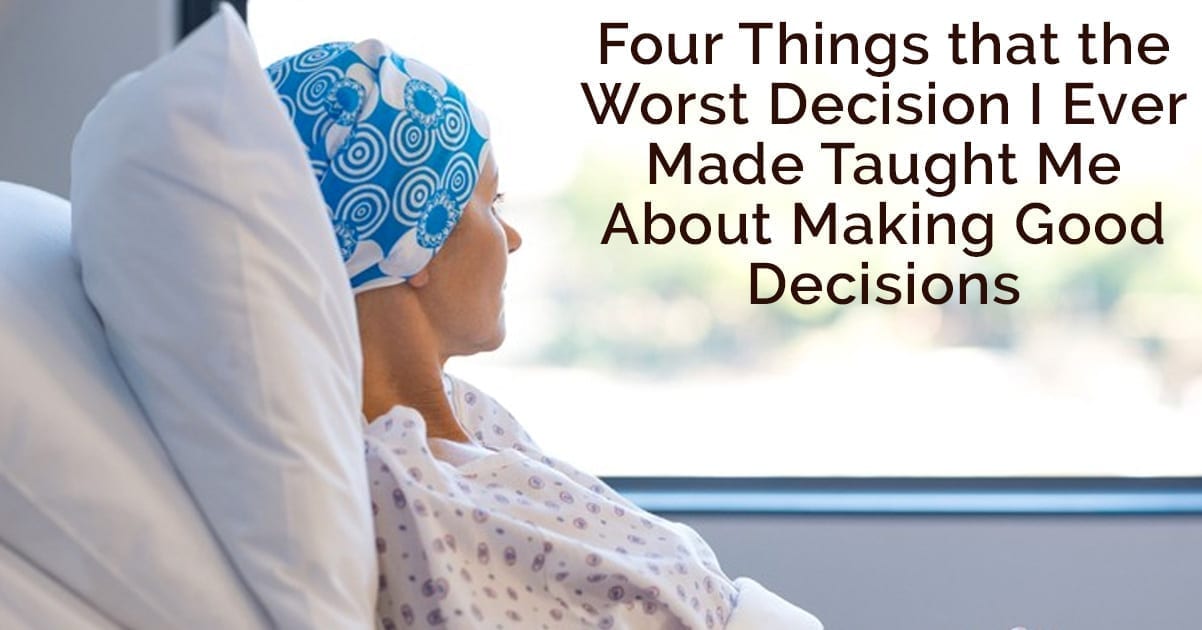
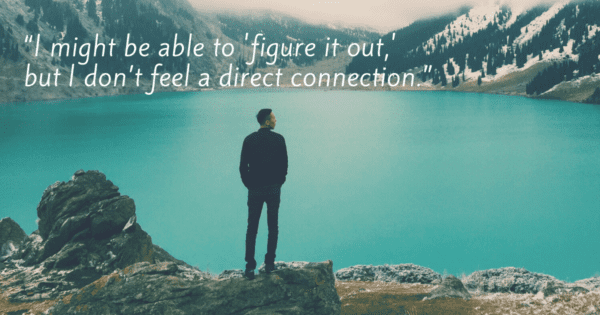
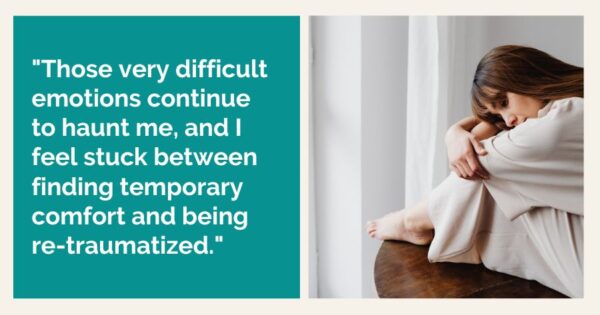
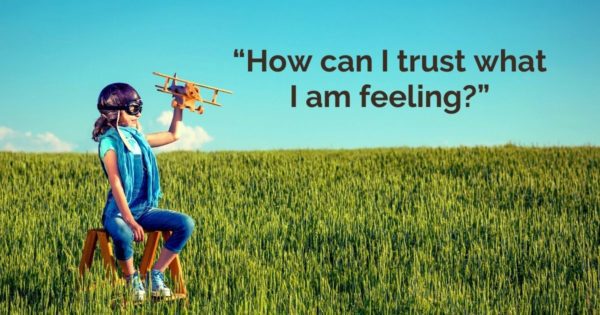
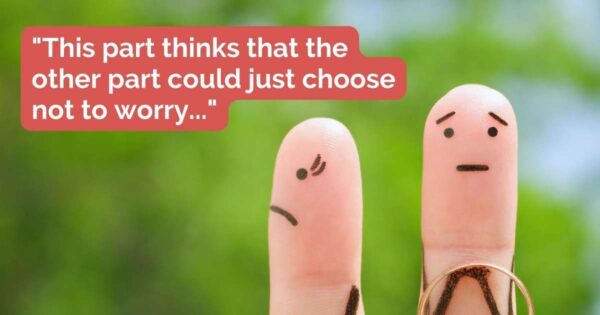
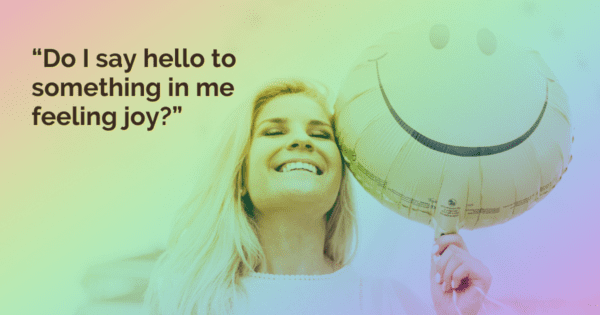

ann – many thanks for sharing this. your very moving account seems be needing some time to settle in for me – like its too important to prematurely decide that I’ve made complete sense of it.
Thank you Matthew. I appreciate what you wrote. I am always in favor of pausing and taking time!
Thanks, Ann for writing and sharing this. Reading it brought me to tears as it touched on some experiences like this in my own life. It also brought some peace and ease as I read your words. Thank you for this gift – and the gift of all the resources and work you offer.
Thanks, Lee, I really appreciate your sharing that my story helped you. I’m so glad it brought some peace and ease.
Thank you so very much for sharing. Your story touched me deeply. I appreciate the honesty and courage it took to share.
Hi Bev, I’m touched that you can see what it took for me to share this. And actually although it was hard to write, it did help! And each time someone receives my story, it helps again.
Thank you Wendy. It took a lot of courage to share something so personal, and I’m grateful every time someone shares that they appreciated it. Thank you again.
Dear Anne, I found that article really moving. Thank you for,your honesty about such a difficult and poignant experience, and what you came to learn from it.